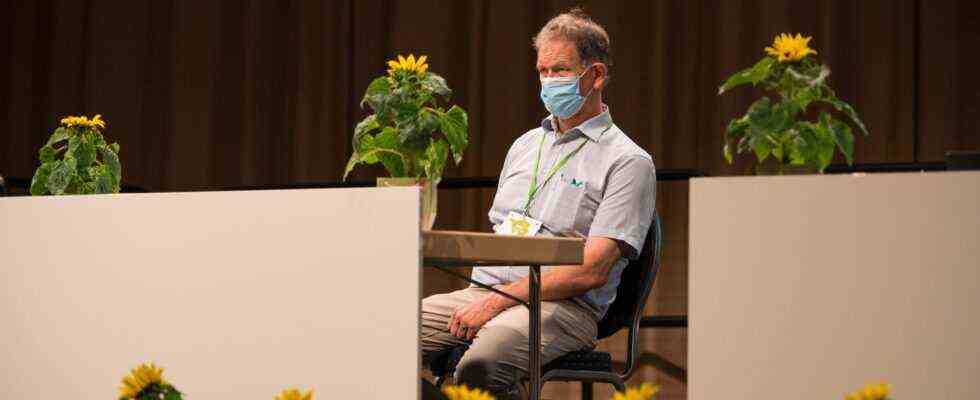Status: 07/16/2021 3:44 a.m.
Left parliamentary group leader Lafontaine advises against voting for one’s own party, the Greens are happy if they can even draw up a list: Before the federal election, there is a fire in the Saarland among the Greens and the Left Party.
By Diana Kühner-Mert, SR
Tuesday, Room 1 of the Saarbrücken Regional Court. The incumbent and the former state chairman of the Saar-Greens sit across from each other without a word. You are opponents in a process that ultimately has to do with who can be the top candidate for the federal election.
The election took place on June 20th. Hubert Ulrich, 63, ex-head of the state, called either the “green tank” or the “godfather of Saarlouis” by his internal party opponents, won the vote. But his opponents accuse him of member manipulation and an unscrupulous maneuver to undermine the controversial green women’s statute at the party congress. The election has been contested, the state executive has broken, two camps are relentlessly facing each other.
Courts decide where the party fails
The party itself is incapable of reaching an agreement. On Tuesday an intra-party arbitration court and the regional court decided against Ulrich. The list will be re-elected on Saturday, at the very last minute. It must be submitted by Monday at the latest, otherwise the Greens – the party that dreams of becoming chancellor – would not be eligible for election in Saarland in the federal elections in September – a disaster. But it is difficult to find suitable candidates at all. The party has also bled to death in terms of personnel over the dispute. It’s not about content for a long time. The Greens did not make it into the state parliament in the last election.
The Saarland could use the Greens as a source of inspiration. An industrialized country that has to reinvent itself, climate-friendly and socially acceptable.
The Left Party and the Lutze Problem
The Left Party in the country is no better. The Left Party is traditionally strong in the home country of Oskar Lafontaine, who is still parliamentary group leader in the state parliament. But instead of helping the Saar left to achieve a strong result, Lafontaine is doing the opposite. He advises against voting for his own party on September 26th. Because he passionately rejects their state chairman, the Bundestag member Thomas Lutze: Member manipulation, even buying votes are in the room. You don’t talk with – but about each other, never something good, never about the program.
It seems at least questionable that Lafontaine will run again in the state elections in 2022. Will the left even make it back into the state parliament without the 77-year-old? Uncertain. The largest opposition faction in the four-party parliament is currently the only guarantee for a minimum of contradiction to the already overpowering grand coalition.
Parliamentary group and party – connected in aversion
The other opposition parties also only play a marginal role. The AfD has two members in the state parliament. It was three times. But one – at least the party’s deputy state chairman – was kicked out of the parliamentary group. Not without a mud fight. The parliamentary group and the state leadership are deeply disliked. Party congresses are regularly challenged. The dispute dominates the headlines. In view of this, many voters do not see the alternative that the party claims to be.
The FDP remains. Scandal-free for years, but also hardly noticeable in the country. The liberals were largely responsible for the failure of the nationwide first Jamaica coalition at the state level in 2012 due to persistently chaotic internal party conditions. After being kicked out of the state parliament, many liberals sought their luck in other parties. To date, the Saar-FDP has not recovered from it. At least not in such a way that an alternative to the grand coalition would be conceivable with it.
If you have such competition, you don’t have to make any further efforts. But for Prime Minister Tobias Hans, CDU, this should not be an advantage. A competition of ideas does not get off the ground in a country that, for lack of money, would urgently need these clever ideas.

